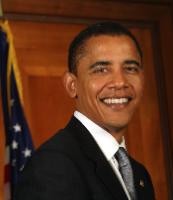How is President-elect Barack Obama planning to shape the foreign policy of his administration? Is he a Wilsonian idealist? A progressive realist? Some mix of the two? How Obama will define his foreign policy still remains somewhat of a mystery.
Between now and when he actually begins his term of office, I expect that his rhetoric about U.S. foreign policy and America's place in the world will become more expansive and lyrical. After all, this is to be expected. American chief executives traditionally use the post-election period, culminating in the Inaugural Address, as a time to appeal to our loftiest ideals and sentiments -- especially the belief in the chosen mission of the Republic to advance universal ideals of freedom across the globe.
Obama may be tempted to place himself as the latest successor of a long line of Democratic presidents who have articulated a highly idealistic view of what America should accomplish around the globe. In 1917, Woodrow Wilson told Americans: "The tragic events of the thirty months of vital turmoil through which we have just passed have made us citizens of the world. There can be no turning back. Our own fortunes as a nation are involved whether we would have it so or not. And yet we are not the less Americans on that account. We shall be the more American if we but remain true to the principles in which we have been bred. They are not the principles of a province or of a single continent. We have known and boasted all along that they were the principles of a liberated mankind."

